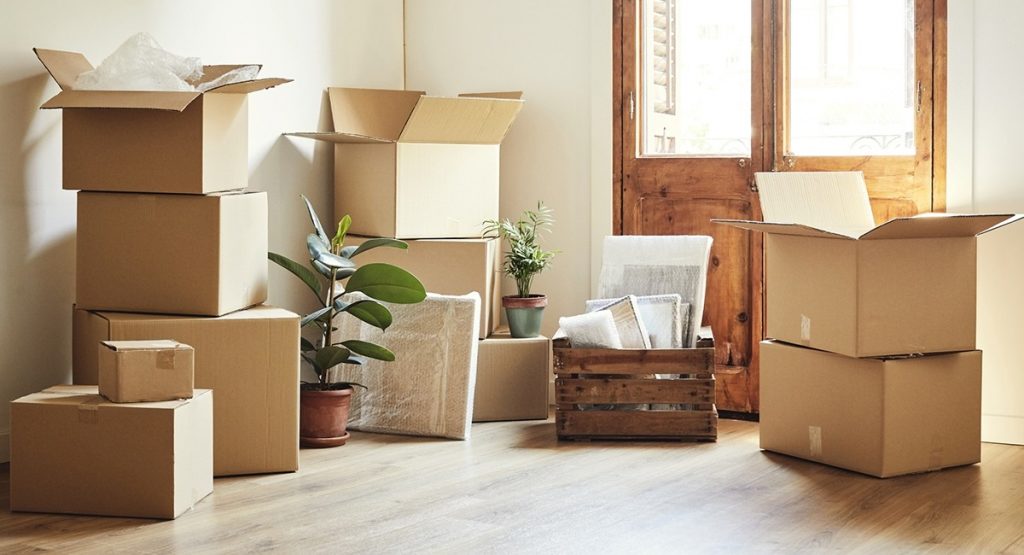
International Day Of Families

Happy Mother’s Day

National Tourism Day

Earth Day

Bulldogs are Beautiful Day

How To Pack For Your Move
Packing Tips For Moving
It’s never easy to pick up all of your possessions and take them somewhere else, especially during the stress of buying or selling a home! Luckily for you, we have a comprehensive guide that should make your next move a little easier! From making an initial checklist to driving that uHaul off the lot, we hope this guide helps you during your next move!

- Make a Checklist – There is a lot to do when you decide to move and it can be nearly impossible to remember everything! We recommend you sit down and make a checklist of all the things you need to take care of before moving. Be sure to include things like forwarding your mail and transferring internet service as these are things many people forget to do. Put your checklist in a brightly colored moving binder so it is easy to find and use throughout your move!
- Declutter – The first thing you should do when preparing to move is declutter! You don’t want to pack and move things that you don’t plan on keeping do you? We recommend getting rid of as much extra clutter as possible before moving so you can have a fresh start in your new home. If you have a lot of stuff to get rid of, consider having an estate sale! It is a great way to get rid of things and make some money while doing it! Lori Fortney, owner of Memory Lane Antiques in Pagosa, will run an estate sale for you from start to finish for a fee.
- Find Boxes – You probably need some boxes to move, right? Investing in good quality boxes can make packing up much easier than it would be with recycled boxes of various condition. Both Walmart & uHaul sell good boxes for fairly cheap! If you would prefer to recycle boxes, try to find boxes in good structural condition. They will save a lot of headaches down the line!
- Set Moving Goals – It can be easy to fall behind during your move so we think it’s smart to set specific moving goals to keep you on track! These goals can be as simple as just packing up a couple rooms per week! Just look at your moving timeline to decide what goals you need to set to be fully packed and ready by your moving date! We recommend putting these goals in writing and adding them to your moving binder so you can keep track throughout your move!
- Pack Essentials Separately – There is nothing worse than getting everything packed only to realize you boxed up the things you need for the week! We recommend putting all your essentials in a brightly colored plastic tote. This way, you have everything you need in one easy to find spot! Be sure to label this box well so it isn’t accidentally packed away!
- Pack According To Room – Moving is almost always a chaotic event. It is easy to get things mixed up and turned around! One thing you can do to help stay organized is to pack room by room. By only packing up one space at a time you decrease the chance of misplacing your things. We recommend breaking up each room into sections. You can pack your closet and dresser items first, then bookshelves, desk items, etc. This will make things much easier to navigate when you get around to unpacking and finding things!
- Packing Boxes Correctly – While packing a box seems very straightforward, there are a couple guidelines you should try to follow! The first is simple. Light things go in big boxes and heavy things go in small boxes! You don’t want to be carrying a huge box
- Use String To Open Boxes Easily – Unpacking boxes after a move can be very tedious and time consuming. You can cut that time down considerably with this simple trick! When you are taping up boxes, place a piece of wool string along the box seam where you are taping. Be sure to leave enough of a tail on the string exposed outside of the tape to grab and tape it up like normal. Now when you go to open the box you can simply pull the string and it will cut the tape for you!
- Label & Take Photos of Furniture Parts – It can be easy to lose parts and pieces of furniture during your move. That’s why it is a good idea to label things as they are taken apart! We recommend putting furniture hardware in plastic bags and taping it to your furniture. This will hopefully prevent any hardware loss during your move!
- Have a Game Plan – Your job isn’t over once you have all the boxes packed! Now is the the time to come up with an actual moving plan. It is a good idea to designate one person to oversee loading the moving truck. This way there is less confusion as far as what needs to be loaded and when. Remember to take your time when loading up. If you get into a rush things tend to be forgotten and you will get frustrated! Take your time and things will get done, the right way.
Hopefully this article gave you some direction for your next move! While the moving process can be stressful, it is so worth it in the end! If you are reading this article and thinking it may be time for a move, give us a call at 970.507.8655. We would be more than happy to help with your buying and selling needs! We even offer reduced commissions!
Hug Your Dog Day

Happy Easter!

Your Next Home

A Quick Guide to Buying Your First Home
The home-buying process is complicated; there’s no doubt about that. But it does not have to be stressful. From establishing a budget to what to do for closing, the following guide can get you started. So sit back, relax, and check out these tips.
Start with research.
It is never too early to begin thinking about what you want in a home. Make a list of features that appeal to you. This can help you formulate a budget and will serve as a starting point for your real estate agent. Spend some time looking online at houses that you think meet your needs. This is a great time to research school zones, crime, and property tax rates.
Crunch the numbers.
Money is usually the biggest factor when it comes to what kind of house you can reasonably expect to buy. Take a look at your budget to determine how much you can afford. If you know how much you can spend each month, you can work backward to determine what price range you’ll need to stick with.
Keep in mind that you will have to put money down—usually anywhere from 3 percent to 20 percent, plus closing costs. You also have the option to pay points on your mortgage, which lowers your interest rate and thereby your monthly payment. Tally some numbers to determine whether or not this is a good option for you, since it depends on things like the type of loan you choose and your personal financial situation.
Start shopping.
Your real estate agent can help you narrow down properties that fit your needs and budget. Then, you can pay a visit to the ones that appeal to you the most. Don’t worry if you do not find a house right off the bat; some buyers look at dozens of homes before making an offer. Do be open-minded, and know that you might have to make some sacrifices to get a home in your price range, even if it doesn’t check all your boxes.
While a certain level of compromise is usually inevitable, Forbes notes you should never cave in when it comes to things like your budget, the location, and the home’s condition.
Check for safety.
When you do find a home that resonates with you, don’t jump to make an offer. Your real estate agent will be happy to take you back for a second or third viewing, where you can think objectively. Look for signs of issues, such as rotting wood, foundation damage and signs of rust or corrosion on pipes. Take a glance around the house so that you know where the electrical system and all points of egress are.
If something doesn’t feel right, you might need to look elsewhere. Either way, it’s in your best interest to hire a home inspector before you sign on the dotted line.
Make an offer and negotiate.
When you buy a home, you can expect some back and forth. The asking price is a good starting point, but, depending on the market and how long that particular home has been listed, there may be some wiggle room. Talk to your agent about making a reasonable offer.
What to do before closing day.
Now that you’ve chosen a house, made an offer, and had it accepted, it might be a month or more before closing day. During this time, there’ll be lots of moving parts, including a title search, the home inspection, and appraisal. There are often some negotiations involved, which Realty Biz News notes your inspection can provide leverage. If everything goes well, you’ll be moving in no time. If not, there may be some delays, but try not to stress and remember that your real estate agent has experience.
Purchasing a home is an involved process. Lean on your real estate agent for guidance and information, and don’t be afraid to ask lots of questions. These professionals know that you may only buy a handful of houses in your lifetime, and they travel this path every day.
Are you ready to take the plunge into homeownership? Let NextHome Rocky Mountain Realty & Rentals help! Whether you’re looking for a savvy foreclosure or a prime piece of land to build upon, their expertise can guide you towards the best decisions, every step of the way. Get in touch by calling (970) 507-8655 today!
A special thank you to Tina Martin for writing this week’s blog post! Be sure to check her blog out for more great articles!
